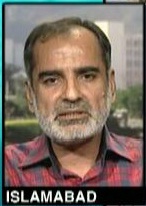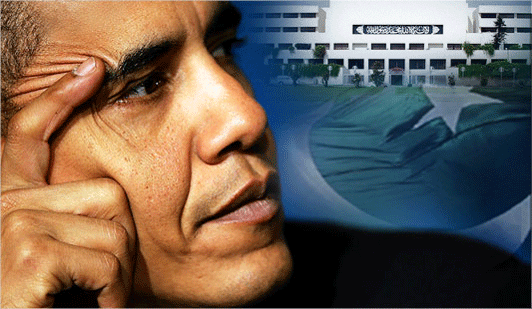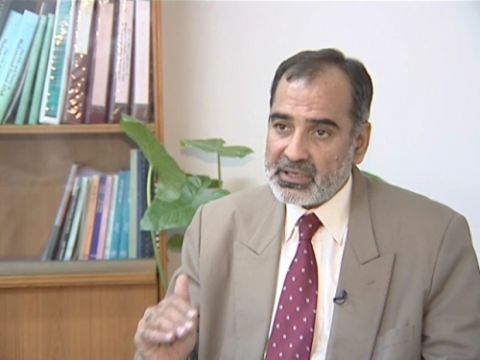IPS crosses the ‘Silver Milestone’
on the completion of the Institute’s 25 years
on the completion of the Institute’s 25 years
DG: IPS aims for applied research conducive to meaningful dialogue, sound policies and viable alternatives for facilitating policymakers and safeguarding stakeholders’ interests. Twenty-five years ago, at the time of inception, we were faced with the question of continuity and survival. After over a quarter of a century, we are talking of sustainability and expansion. For a policy-oriented research institute in Pakistan’s private sector, the longevity itself can be taken as an achievement. When IPS came into being, there was no autonomous think-tank in Pakistan or the rest of the Muslim World. Pioneering a non-governmental and not-for-profit research institute was beyond imagination in those times.
Looking at the human and financial resources we began with, it is clear that we have steadily grown with time. We had a vision to create an infrastructure for the promotion of research work in Pakistan, and to thereby address some of the issues facing the country. Promoting dialogue and facilitating diverse opinions through an inclusive approach has been one of the key achievements of IPS. We have been successful in creating a platform to associate people to work with us and to promote a research culture in Pakistan. Though there were individuals, universities and Government organizations doing some research work, IPS played an important role for civil society by creating an enabling environment with the aim of involving as many people and views as possible.
IPSNews: How did IPS attain sustainability?
DG: We started IPS in rented accommodation with meager resources and a tiny team. Little by little we developed some endowments. We have always been mindful of the fact that the growing needs of a think-tank cannot be fulfilled without resources. Larger challenges and an expanding scope of work demand larger teams and more resources. We have been focused on productivity through capacity building and effective teamwork, with no extravagance. It takes vision, hard work and planning to attain sustainability. We paced our growth in a way that we never had to compromise our autonomy for addressing our day-to-day needs. We have built up a somewhat self-sufficient library, as well as adequate conference halls, meeting rooms, offices, and put in place the required logistical and technological support systems through endowments. In our current state, we cannot be considered to have ‘arrived’ at sustainability, but we are on the right track and we are determined to get there in due course.
IPSNews: How does IPS’s research impact national policies?
DG: We should keep in view the system of policy-making in Pakistan as a whole. It is very unfortunate that the policy-making process is often motivated by personal or vested interests instead of merit as is the case in many other developing countries. In such a situation, it is rare for policy-makers to benefit directly from the research conducted by independent think-tanks. We have been proactively reaching out with our findings, regardless of the response. We know that research work is never one-dimensional: it impacts the government as well as civil society in more than one way.
We have tried to assemble all stakeholders in our research work, to interact continuously with policy-makers, and to invite policy-making institutions in our programs. Through this interaction and dialogue, we have been able to constantly analyze various policies and disseminate findings. It is important to note that IPS seeks to address not only policy-makers, but also opinion-makers as well as the common citizens of the country.
IPSNews: Is IPS different from other think-tanks in the country? If so, how?
DG: As a pioneer think-tank we remain focused on highlighting similarities. Our deliberate role is to encourage and cooperate with others for creating the right environment for research and policy studies. Research institutes are not expected to promote an entrepreneurial outlook or sensationalism. Highlighting dissimilarities of views for the sake of image building is not constructive in the long run. In its institutional functioning, IPS is very similar to other think-tanks. We follow standard research practices and use the same instruments that other think-tanks use.
IPS carries out research in three broad areas: one, Pakistan studies, covering aspects such as Pakistani society, education, economy, politics and security; two, international relations, including regional and global politics; and, three, contemporary Islam, in which we cover Islamic Studies, thought and movement as well as the Muslim world. There are many organizations working in some specific areas but none that work on all three of these subjects simultaneously. This provides us certain synergies as well as flexibility in our work.
As an indigenous think-tank IPS does not shy away from taking Pakistan and Islam as its reference points. We envision a prosperous and self-reliant Pakistan and a rediscovery of Islam’s universal values through research, dialogue and information sharing. Our approach may give us distinction, but we are not aiming to be distinctive for the sake of distinction.
Despite our position on Pakistan and Islam, we have been able to gather people of different shades and affiliations at one table. People from all walks of life have experienced our flexibility, openness and facilitating role in creating a congenial environment for meaningful dialogues, even among intellectuals with extreme positions.
IPSNews: Was IPS able to collaborate with other indigenous or international organizations in any way?
DG: As a policy, our research work included three essential elements from the outset: interaction, dialogue and collaboration. We encourage all indigenous and international organizations and afford an equal opportunity for all, without discrimination, to contribute in our focus areas. Similarly we are ever willing, indeed, eager, to collaborate in any form with others wherever there is room.
I am happy to mention that many institutions within the country have collaborated with us in the implementation of different projects. These include, to name only a few which are very recent, the Universities of Punjab and Peshawar, the University of Management Sciences (UMT) from the private sector, the National Institute of Public Administration (NIPA), International Islamic University (IIU) and its Da’wa Academy, World of Islam Trust (WIT), Institute of Strategic Studies (ISS), and the Chambers of Commerce and Industries of Gujranwala, Rawalpindi, Gujrat and Peshawar.
In the international context, we have worked with the Islamic Development Bank; International Institute of Islamic Thought (IIIT), USA; International Center for Religion and Diplomacy (ICRD), USA; Islamic Foundation (IF), UK; Hartford Seminary, USA; Konrad Adaneur (KA) and Friedrich Ebert Stiftung, Germany; Madina Trust, UK; Chinese Association for International Understanding (CAFIU), China; Institute of South Asian Studies; Sichuan University, Chengdu, China and the Institute of Political and International Studies (IPIS), Iran…I could go on since the list of our international partners over the last quarter of a century is quite long! Currently we are engaged with some Chinese institutions as well as ICRD, and the Hartford Seminary are collaborating with us in some of our projects. The banks Al-Barakah and Al-Mizan have also sponsored some of our programs pertaining to Islamic banking.
As you can see, this variety reflects our approach. We cooperate with all institutions with an open mind as long as they share our vision. We extend cooperation and collaboration on both the national and the international level to promote the causes that are important for peace, justice, and development of the society. However, we flatly refuse to enter into any collaborative endeavor that requires us to compromise either our objectives or our principles. We remain open and flexible to one-time projects as well as long-term programs wherever there are no strings attached. IPS considers itself successful in achieving this objective.
IPSNews: Don’t you think the sponsored projects might thwart your vision and objectives?
DG: In this regard, the most important thing is the procedure under which we make our work plan and program. Our topics of research are approved by a National Academic Council (NAC). Our research coordinators develop proposals about research themes, and an executive committee finalizes these proposals. While IPS utilizes its own resources on long-term projects, it solicits outside collaboration through proposals for projects that warrant extra support.
Basically, we conceive the project and welcome institutes, organizations and individuals who wish to participate in it based on the framework we propose. We do not accept conditional projects. We conceive, design, and implement projects openly and in accordance with the policy and criteria set by the National Academic Council.
IPSNews: Does the leadership’s political affiliation affect IPS’s working?
DG: It would be unnatural for any person who has the ability to think and understand to remain silent on issues affecting his or her country, the world and humanity. Therefore, any intellectual institution, and the people working in it, can have opinions on the affairs of their country. In many cases, they may also have affiliations with one political party or the other.
Similarly a research institute is expected to uphold certain professional standards and norms. We believe people are entitled to have opinions and affiliations as long as they do not force their views on others. IPS has always maintained a clear demarcation between professionalism and personal views. It is true that the IPS founder and chairman, Professor Khurshid Ahmed, is affiliated with a political party but he never brought the party politics inside the institute. Anyone who has ever interacted with him knows fully well that he adheres to work norms and ethics in a fine manner. He always keeps this delicate balance.
To corroborate our non-political claim, it should be on record that the National Academic Council supervises our academic projects and, every three years, its membership changes. The present NAC members have different affiliations but they all work to promote research, purposefulness and objectivity. The IPS leadership has been able to cater to policy-makers of different opinions and to establish a platform where people of different affiliations assemble for a constructive exchange. We provide an opportunity for everyone to engage with us in academic work and research. From this, it is easy to deduce that this organization is professional in its vision, approach and work.
IPSNews: Do you feel IPS needs any improvement?
DG: As far potential improvement goes, the sky is the limit, as they say. The more you improve, the more you see room for improvement. Particularly, in the context of the internal problems of Pakistan, as well as regional and global issues, we see great challenges that need to be addressed through some solid research. What we have done so far seems little compared with the magnitude and the complexity of challenges around us. Having started with a small team and meager resources, however, we are grateful to God Almighty for enabling us to play the role that we have played so far.
The current challenge for IPS, I believe, is to build its capacity to monitor and conduct more and better research on the rapid changes taking place in today’s fast-moving world, and to expand its infrastructure, develop expertise, and properly disseminate its work in the best possible way and in a timely manner.






